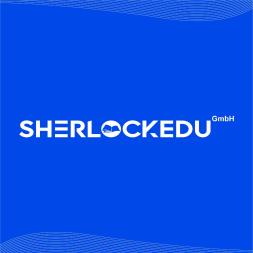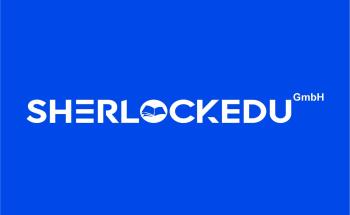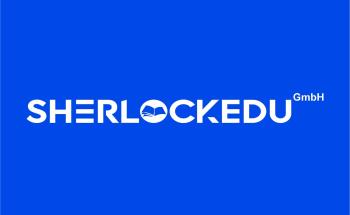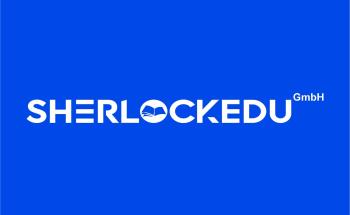
Third-party on-site course
SOCIAL and EMOTIONAL LEARNING-BERLIN
Social-emotional learning" is the process of developing self-awareness, self-control and interpersonal skills that are vital for success in school, work and life. (Committee for Children) Researchers state that social and emotional skills directly affect the learning and teaching process.
13.09.2024
Next upcoming session:
13.10.2025
- 17.10.2025
Multiple locations
Description
- Day 1:
- Why Social and Emotional Learning
- The Importance and Effects of Social and Emotional Learning
- Basic problems in education with active listening, and sharing concrete experiences on this subject.
- Day 2
- Recognizing the 5 Competencies in the Social Emotional Learning Model: self-awareness, self-regulation, social awareness, relationship skills and responsible decision maker
- Social emotional learning in Finnish education IBL digital applications
- Mightifier app. Examining a sample curriculum containing IBL, analyzing it, and discussing aspects that can be improved.
- Day 3
- Teacher's own social-emotional skills to manage stress, prevent burnout and increase well-being
- The teacher's role in social emotional learning
- Applied activities (drama, improvisation, outdoor activities) in which he/she can actively use IBL skills in the classroom, and the creation and implementation of these activities in heterogeneous groups in the course.
- Day 4
- Teacher's Personal Project IBL Creating a skill-based lesson plan
- Creating a blog that will include teacher materials, books, flash cards and printed materials for the participants to use
- Learning the student e-portfolio system in the Finnish education system.
- Day 5
- Finding the sixth competence (new ideas) with the Learning Café method, teams creating e-stories on issues such as anxiety that hinders student well-being, peer bullying, low academic success, which Pisa emphasizes
- Naming the professions of the future with the brainstorming method under the leadership of the instructor
- IBL skills. presentation about its connection with these professions.
Learning objectives
- Improved Emotional Intelligence:
- Increased self-awareness: Individuals become more in tune with their own emotions.
- Enhanced self-regulation: Better ability to manage and control emotions in various situations.
- Strengthened Interpersonal Skills:
- Improved communication: Better at expressing thoughts and feelings, and active listening.
- Enhanced empathy: Increased ability to understand and share the feelings of others.
- Positive Relationship Building:
- Improved social skills: Better at initiating and maintaining positive relationships.
- Reduced conflicts: Enhanced conflict resolution skills contribute to healthier relationships.
- Increased Resilience:
- Better coping mechanisms: Improved ability to deal with stress, setbacks, and challenges.
- Increased perseverance: Enhanced resilience and persistence in the face of difficulties.
- Academic Success:
- Improved focus and attention: Better emotional regulation can positively impact academic performance.
- Enhanced problem-solving skills: Improved ability to think critically and make sound decisions.
- Behavioral Improvement:
- Reduced negative behaviors: SEL can contribute to a decrease in disruptive or aggressive behaviors.
- Increased prosocial behavior: More positive and cooperative interactions with peers and adults.
- Greater Self-Esteem and Confidence:
- Positive self-image: SEL contributes to a more positive perception of oneself.
- Increased self-efficacy: Improved belief in one's ability to achieve goals.
- Life Skills Development:
- Decision-making skills: Improved ability to make thoughtful and responsible decisions.
- Goal-setting: Better at setting and working towards personal and academic goals.
- Cultivation of a Positive School Culture:
- Improved classroom climate: A positive impact on the overall learning environment.
- Increased sense of belonging: Students feel more connected to their school community.
Methodology & assessment
Methodology
Pedagogical Approaches: Teacher training courses typically employ various pedagogical approaches to model effective teaching practices. This may include lectures, interactive seminars, workshops, and hands-on teaching experiences.
Practical Teaching Experience: Practical teaching experience is a fundamental component of teacher training. Participants often have opportunities to observe experienced educators and engage in actual teaching in classrooms or educational settings. Feedback and guidance from mentors are essential during these experiences.
Collaborative Learning: Collaborative learning is often encouraged in teacher training courses. Participants may work in groups to develop teaching materials, lesson plans, and teaching strategies. Collaborative projects can promote the exchange of ideas and best practices.
Reflective Practice: Reflective practice is a crucial aspect of teacher training. Participants are encouraged to reflect on their teaching experiences, analyze their teaching methods, and consider how to improve their practice. Journals, written reflections, and discussions are common tools for fostering reflective practice.
Assessment
Written Assignments: Teacher training courses often include written assignments, such as research papers, case studies, or essays, on topics related to education and teaching methods.
Examinations: Some teacher training courses may include written examinations to assess participants' understanding of pedagogical theories, educational psychology, and other relevant subjects.
Professionalism and Communication: Assessment may also consider participants' professionalism, communication skills, and ability to collaborate with colleagues, parents, and students.
Feedback and Self-Assessment: Regular feedback from mentors and self-assessment are crucial components of teacher training assessment. Participants are encouraged to use feedback to improve their teaching skills
Pedagogical Approaches: Teacher training courses typically employ various pedagogical approaches to model effective teaching practices. This may include lectures, interactive seminars, workshops, and hands-on teaching experiences.
Practical Teaching Experience: Practical teaching experience is a fundamental component of teacher training. Participants often have opportunities to observe experienced educators and engage in actual teaching in classrooms or educational settings. Feedback and guidance from mentors are essential during these experiences.
Collaborative Learning: Collaborative learning is often encouraged in teacher training courses. Participants may work in groups to develop teaching materials, lesson plans, and teaching strategies. Collaborative projects can promote the exchange of ideas and best practices.
Reflective Practice: Reflective practice is a crucial aspect of teacher training. Participants are encouraged to reflect on their teaching experiences, analyze their teaching methods, and consider how to improve their practice. Journals, written reflections, and discussions are common tools for fostering reflective practice.
Assessment
Written Assignments: Teacher training courses often include written assignments, such as research papers, case studies, or essays, on topics related to education and teaching methods.
Examinations: Some teacher training courses may include written examinations to assess participants' understanding of pedagogical theories, educational psychology, and other relevant subjects.
Professionalism and Communication: Assessment may also consider participants' professionalism, communication skills, and ability to collaborate with colleagues, parents, and students.
Feedback and Self-Assessment: Regular feedback from mentors and self-assessment are crucial components of teacher training assessment. Participants are encouraged to use feedback to improve their teaching skills
Certification details
- Completion Certificate: Upon successfully completing a teacher training course, you will typically receive a completion certificate or diploma from the training provider or institution. This certificate acknowledges your participation and successful completion of the training.
- Course Duration: The duration of teacher training courses can vary widely. Some may be short-term workshops or seminars, while others may be more comprehensive and span several weeks or months. The certificate may indicate the total number of hours or credits completed.
- Content and Curriculum: The certificate should outline the key topics, content, and skills covered during the training. This information helps future employers or educational institutions understand the scope of your training.
- Credits or Continuing Education Units (CEUs): In some cases, teacher training courses may offer academic credits or Continuing Education Units (CEUs). These credits can be valuable for professional development and may be recognized by educational authorities or institutions.
- Language of Instruction: If the teacher training course is conducted in a language other than your native language, the certificate may indicate your language proficiency level or the language in which the training was delivered.
- Evaluation and Assessment: Teacher training courses often involve assessments or evaluations of your performance. The certificate may include information about your performance in the training, such as grades or evaluations.
- Recognition and Accreditation: Ensure that the teacher training course and the institution providing it are recognized and accredited by relevant educational authorities or professional bodies. This can affect the credibility and transferability of your certificate.
- Pedagogical Practices: If the training includes practical teaching experience or classroom observations, the certificate may highlight your proficiency in specific pedagogical practices or teaching methodologies.
Pricing, packages and other information
-
Price:400Euro
Additional information
-
Language:English
-
Target audience ISCED:Primary education (ISCED 1)Lower secondary education (ISCED 2)Upper secondary education (ISCED 3)
-
Target audience type:TeacherCareers CouncillorHead Teacher / Principal
-
Learning time:25 hours or more
Upcoming sessions
Past sessions
More courses by this organiser

On-site
SUSTAINABLE SCHOOLS- EDUCATORS LEADING ENVIRONMENTAL CHANGE-BERLIN
Next upcoming session
-
Multiple locations
Organised by

On-site
CREATIVE THINKING-Problem Solving-Managing Classrooms and Opening Minds for 21st Century-BERLIN
Next upcoming session
-
Multiple locations
Organised by

On-site
FROM BURNOUT TO BALANCE: STRATEGIES FOR TEACHER WELL-BEING-BERLIN
Next upcoming session
-
Multiple locations
Organised by

